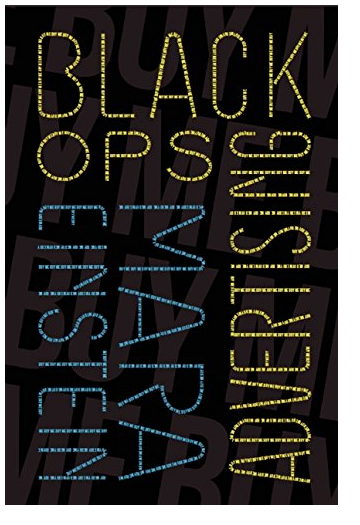Black Ops Advertising, book review: Charting the rise and rise of 'sponsored content'


Black Ops Advertising • By Mara Einstein • OR Books • ISBN: 978-1-68219-042-5 • 248 pages • $18/£13
Is this book review an ad?
In an analysis programme for BBC Radio 4 a few months ago, Andrew Brown, a journalist at The Guardian, asked whether the rise of ad blockers would ultimately mean the death of free news on the internet. In Black Ops Advertising, Mara Einstein, professor of media studies at Queen's College, City University of New York, suggests instead a future in which advertising increasingly subsumes all content. Everything will look free, but hidden agendas, data collection and fakery will be everywhere. This is the internet as con trick, where the natural human instinct to share news and gossip is co-opted as low-cost marketing for brands and others who do not fundamentally care about us except as sources of revenue.
Einstein spends the first half of the book surveying the landscape. By the time you're finished reading those chapters, you're squinting with suspicion at everything. If this article you're looking at doesn't have a tiny, pale grey notice saying 'sponsored', 'promoted', or some other polite term for "bought and paid for", does that mean it's legit? When I tweet a link to an article, have I been gamed into marketing, or am I -- as I usually think -- just sharing something interesting with my friends via the technology of our mutual choice?
Einstein argues that much of what we think is 'free' really isn't: we pay with our data (a point privacy advocates have been making for years), and also with our irreplaceable time and attention. Tricking us into clicking on things we don't think are ads is, in Einstein's view, basically theft -- a view I wish had been appreciated by the judge who recently tossed out a class action suit over Google's use of captchas.
At this point Einstein heads for numbers: according to Advertising Age, in an ad-free world, television would be much skimpier, the bill for individual subscriptions might be $1,800 a year, Facebook would cost $12, and Buzzfeed would not exist (I'm not sure they're correct that no one would pay for it). Occasionally, Einstein's focus on deception leads her to attribute a single motive where multiple ones apply -- it was the potential for online abuse that was likely a bigger factor in making an 'unlike' button unworkable for Facebook, for example.
Don't be deceptive
Einstein concludes by at least partly favouring advertising, as long as it's not deceptive, because her alternative is the disappearance of large and valuable chunks of the media landscape. I think this is too pessimistic. It's already clear that independent reporting is not vanishing from this earth, but moving to new locations. Both NGOs and academic departments now use journalistic techniques to research and publish the kinds of stories that mainstream media struggle to afford. Although the agendas limit what such groups investigate, that dictates more the topics they cover rather than their findings. That said, where traditional media shine is in breaking news, as in the last few weeks, where speed in finding and reporting what's happening is essential.
The most useful element of Black Ops Advertising is that it makes you more aware of what you're reading and where it came from. So here I am writing a review of a book. My copy was provided free by the publisher, and doubtless the finished page will have ads on it. Is this review an ad? You decide.
More book reviews